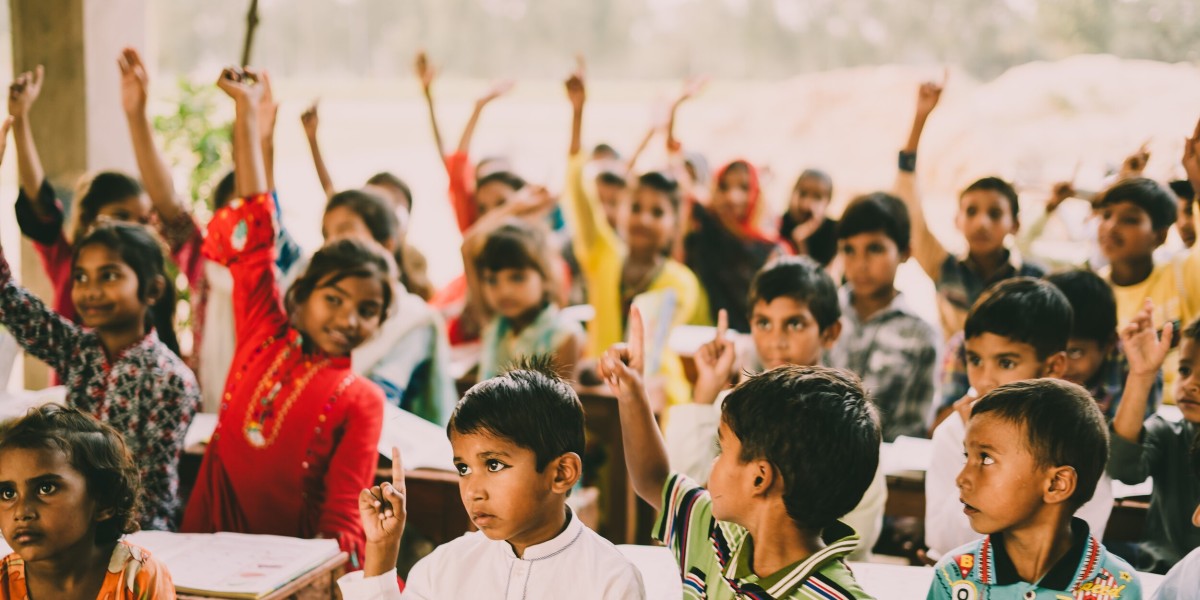Empowering children is essential for building a prosperous and equitable society. Among the many tools available to achieve this goal, education stands out as the most powerful and transformative force. In the context of Pakistan, where millions of children face economic hardships, social barriers, and limited access to resources, education plays a vital role in enabling children to realize their full potential and participate actively in society.
At SOS Children’s Villages Pakistan, empowering children through education is a core mission. This blog explores how education serves as a critical vehicle for children empowerment in Pakistan, outlines the challenges faced, and highlights the initiatives that can make a real difference in the lives of vulnerable children.
Understanding Children Empowerment in Pakistan
Children empowerment refers to the process of enabling children to gain control over their lives, make informed decisions, and exercise their rights and responsibilities. It means creating opportunities for children to develop skills, knowledge, confidence, and agency to influence their environments positively.
In Pakistan, children empowerment is not just a social imperative but a legal obligation under the UN Convention on the Rights of the Child, which Pakistan has ratified. Education is central to this process as it equips children with the tools they need to overcome systemic barriers.
Why Education is Critical for Children Empowerment
1. Building Knowledge and Skills
Education provides children with literacy, numeracy, and critical thinking skills that form the foundation for lifelong learning and employment.
2. Enhancing Self-Confidence and Agency
Through education, children gain awareness of their rights and develop the confidence to voice their opinions and stand up against injustice.
3. Promoting Social Inclusion
Schools create spaces where children from diverse backgrounds interact, fostering tolerance, respect, and social cohesion.
4. Breaking the Cycle of Poverty
Education increases access to better job opportunities, thereby reducing poverty and improving living standards.
5. Protecting Children from Exploitation
Educated children are less vulnerable to child labor, trafficking, and early marriage because they have greater awareness and support networks.
Challenges to Children Empowerment through Education in Pakistan
Despite its potential, education as a tool for children empowerment faces numerous challenges in Pakistan:
1. Limited Access to Education
Around 22 million children remain out of school, particularly girls and children in rural areas.
2. Gender Inequality
Cultural norms often restrict girls’ education, limiting their empowerment.
3. Poor Quality of Education
Many schools lack trained teachers, adequate facilities, and updated curricula.
4. Socioeconomic Barriers
Poverty forces children into work or household responsibilities, preventing consistent schooling.
5. Lack of Inclusive Education
Children with disabilities and special needs are often excluded due to inadequate resources.
6. Psychosocial Challenges
Children who have faced trauma or neglect require support that many schools cannot provide.
SOS Children’s Villages Pakistan: Empowering Children Through Education
At SOS Children’s Villages Pakistan, education is integrated with holistic care to empower children comprehensively.
Family-Like Care Environment
Children live in safe, nurturing SOS homes where caregivers encourage education and personal growth.
Quality Educational Opportunities
SOS provides scholarships, enrolls children in schools, and ensures access to higher education.
Remedial and Psychosocial Support
Children receive additional tutoring and counseling to overcome academic and emotional hurdles.
Vocational and Life Skills Training
Youth receive practical skills training to enhance employability and independence.
Advocacy and Community Engagement
SOS works to raise awareness about children’s rights and promote education for all.
The Impact of Education on Children Empowerment: Real-Life Stories
Fatima’s Journey to Self-Reliance
Fatima, an orphaned girl from rural Sindh, was enrolled in an SOS family. Through quality education and mentorship, she became the first in her family to attend university and now advocates for girls’ education in her community.
Ahmed’s Transformation Through Vocational Training
Ahmed left school early to work. SOS’s vocational training programs helped him gain skills in carpentry. Today, he owns a workshop and supports his siblings’ education.
These stories illustrate education’s power to transform lives.
The Role of Community and Government in Promoting Children Empowerment Through Education
Strengthening Policies
Government commitment to free and compulsory education is essential to universalize access.
Enhancing Infrastructure
Building schools, improving facilities, and providing learning materials are critical steps.
Training Educators
Investing in teacher education ensures quality instruction.
Promoting Gender Equality
Campaigns and incentives encourage girls’ enrollment and retention.
Supporting Inclusive Education
Programs must accommodate children with disabilities.
Engaging Parents and Communities
Awareness programs help families value education and support children’s schooling.
Innovative Approaches to Education for Empowerment in Pakistan
Digital and Distance Learning
Technology can bridge gaps for children in remote or crisis-affected areas.
Life Skills and Citizenship Education
Curricula that include leadership, communication, and rights education foster empowered youth.
Peer Mentorship Programs
Children learn and grow through peer support networks.
How You Can Support Children Empowerment Through Education
- Sponsor a child’s education through reputable organizations.
- Volunteer as a tutor or mentor.
- Donate to scholarship funds or school infrastructure.
- Advocate for policies supporting education access.
- Raise awareness about the importance of education for empowerment.
Conclusion
Children empowerment in Pakistan is a multifaceted challenge that requires sustained effort and commitment. Education is not just a pathway to knowledge but a catalyst for personal growth, social inclusion, and economic opportunity. By ensuring that all children have access to quality, inclusive education, we invest in a future where they can become confident, capable, and active members of society.







